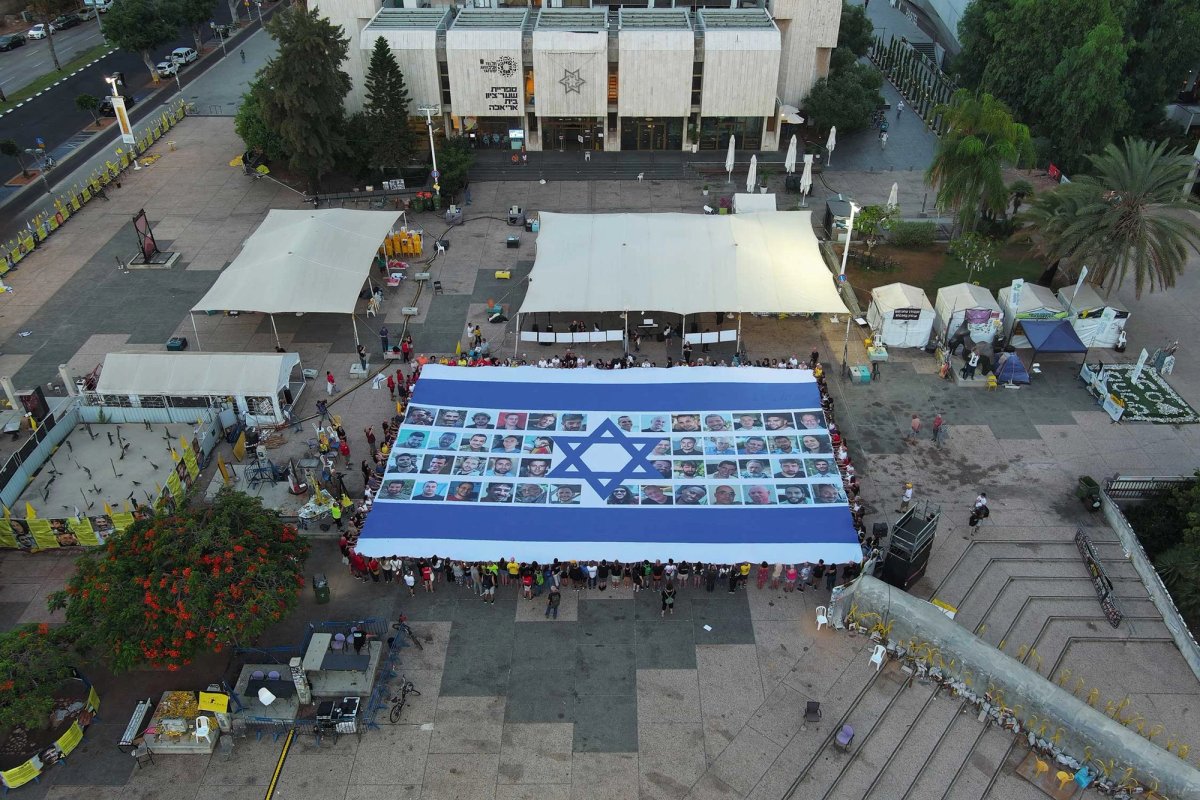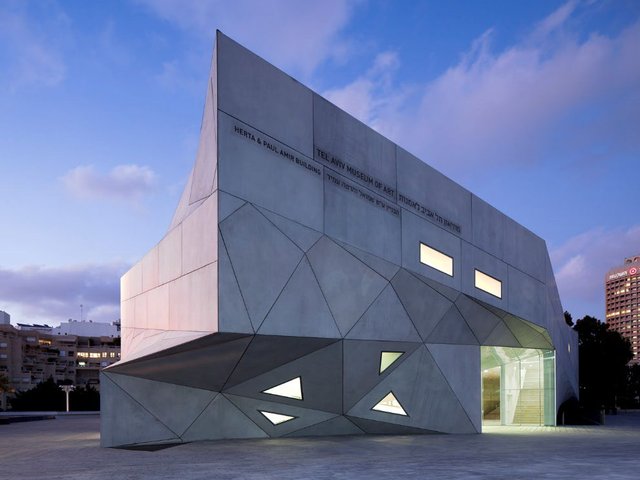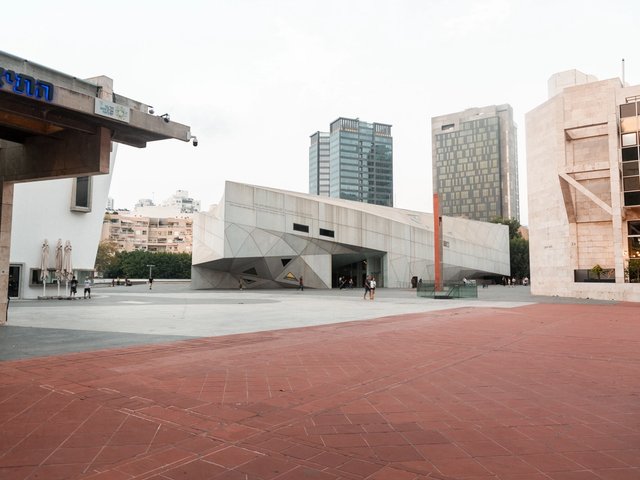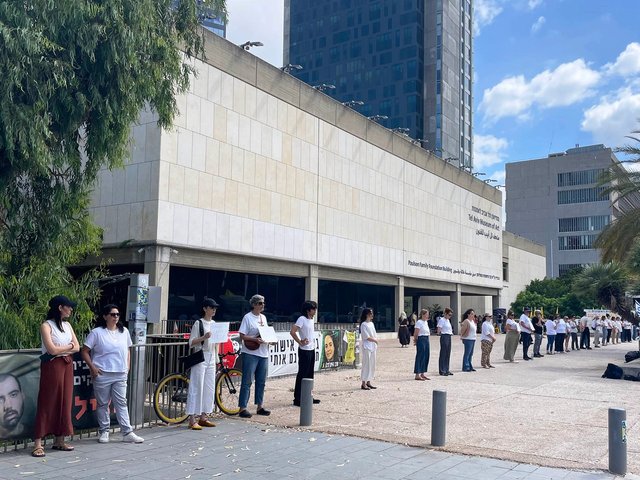On 14 May 1948, Israel declared its independence at the Tel Aviv Museum of Art. Just over 75 years later, the museum was one of many in the country scrambling to protect its holdings after the 7 October 2023 attacks—the bloodiest day in Israel’s history.
The attacks and Israel’s ensuing war against Hamas in Gaza over the past two years have resulted in a “deafening silence” from the art world, says Tania Coen-Uzzielli, who began her role as director of the Tel Aviv Museum in 2019. “Most of our international collaborations were put on hold, delayed or cancelled,” she tells The Art Newspaper.
The museum has a reputation for political activism, a priority that Coen-Uzzielli’s predecessors lacked and which the municipality, which oversees the museum, welcomes, she says. The museum closed partially during the “day of paralysis” in March 2023, when protesters organised a series of disruptions across the city to protest against the judicial reforms of Israeli Prime Minister Benjamin Netanyahu. The museum has also taken a firm public stance to end the war and the suffering in Gaza.
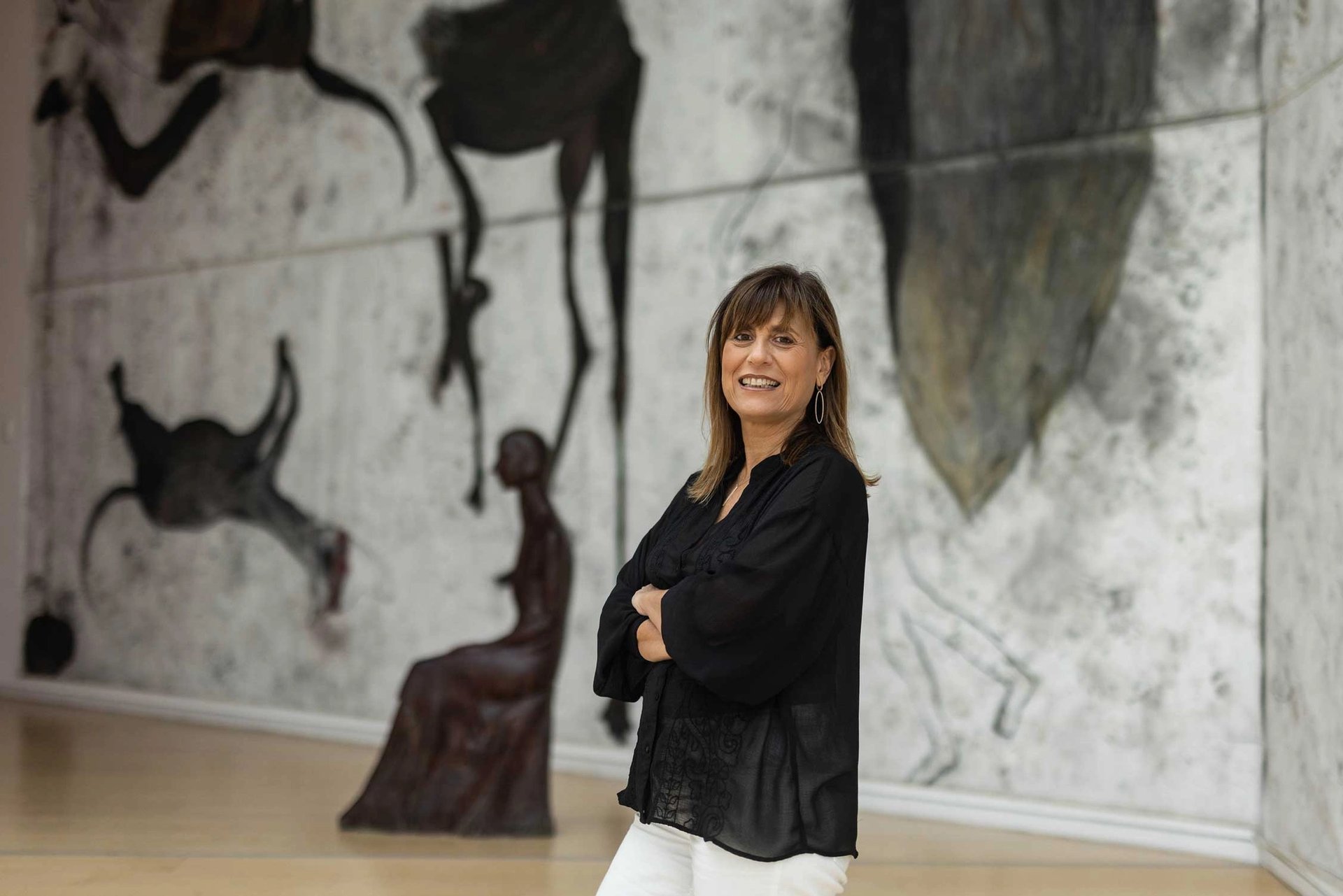
Tania Coen-Uzzielli, director of the Tel Aviv Museum of Art
Photo: © Hadas Parush
Coen-Uzzielli feels caught between criticism from the Israeli right and the art world on the left, even as she prioritises showing Arab artists and engaging new visitors via the “Tel Aviv Museum speaks Arabic” programme. “At the Tel Aviv Museum, we can speak about the pain of the other and our pain and to present and hold this together,” she says. “I felt that this was completely misunderstood.”
Coen-Uzzielli says that critics often decry Israelis rather than the government. “This is what is important for me to share with my colleagues,” she says. “Israel is still a democracy.”
Tel Aviv-Yafo City Museum
Just over a mile away, the Tel Aviv-Yafo City Museum inaugurated its building—formerly city hall—with the mayor in September 2023 and was scheduled to open to the public in October. After the Hamas attack, the museum shifted quickly to “documenting the city’s lived reality during wartime” and supporting artists facing financial and other challenges, Michal Baharav Uzrad, the director and chief curator, tells The Art Newspaper. “These projects allowed the museum to fulfil its civic role at a time when normal cultural life was disrupted.”
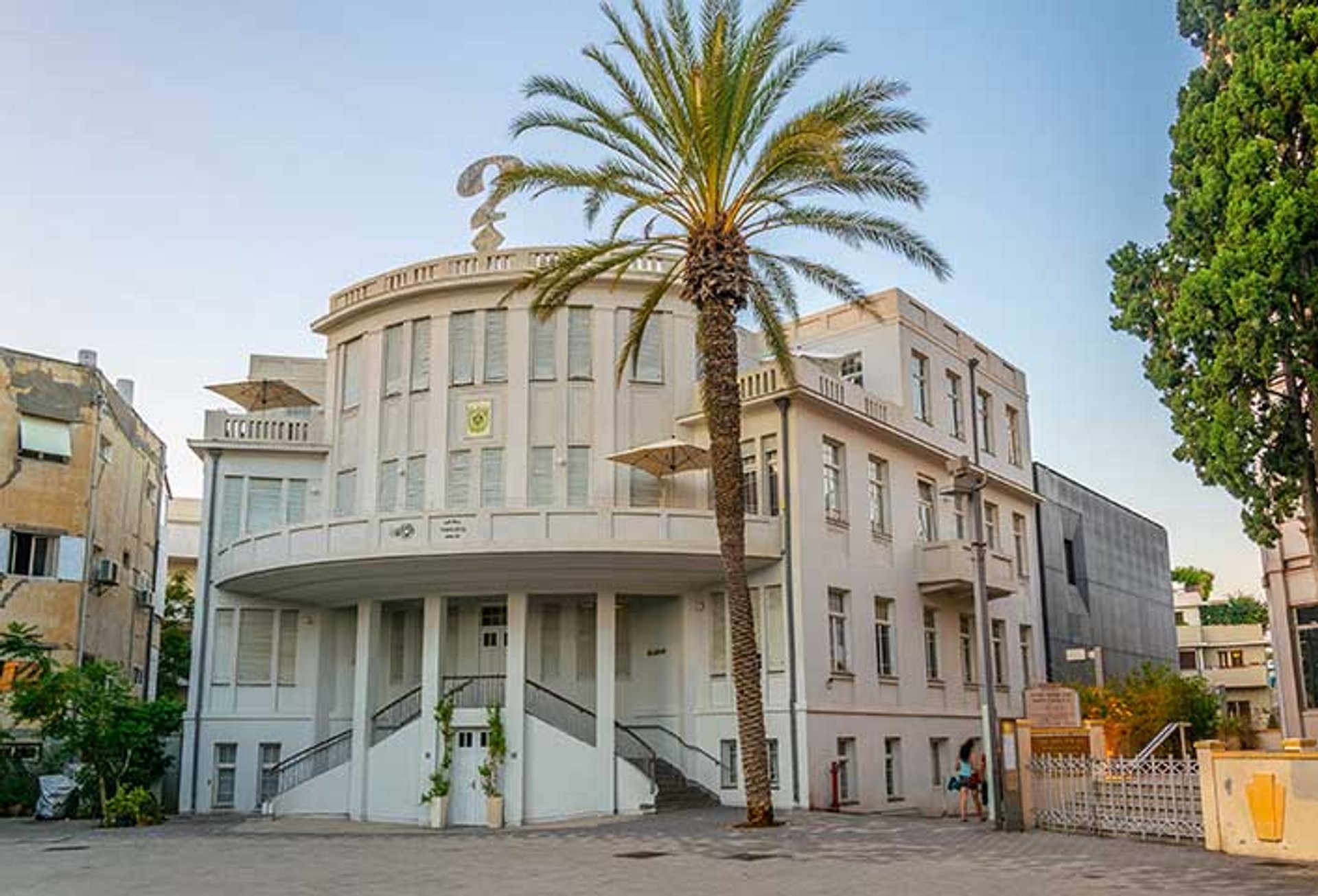
Tel Aviv-Yafo City Museum, before Iranian missiles damaged the building last year
Photo: © dudlajzov
Running a museum after 7 October “has meant balancing resilience and grief” and “working in the shadow of national trauma”, she says. Iranian missiles damaged the museum’s historic building last year. “We want colleagues overseas to understand that keeping a civic museum open under such circumstances is both an act of responsibility and of hope,” she says. “Unfortunately, we have not received direct support from international colleagues since Oct. 7.” She hopes that after the war ends and hostages return home in the “near future”, the museum can rebuild international relationships.
National Library of Israel
In Jerusalem, around 40 miles away, the National Library of Israel was preparing galas and ribbon cuttings ahead of the 17 October 2023 opening of its 11-storey building. On 7 October, conservators and library leaders dismantled the permanent exhibit and put manuscripts, rare books, musical scores and archives into secure vaults, a library spokeswoman tells The Art Newspaper.
The library took a “leap of faith” and opened reading rooms on 29 October 2023. In mid-November that year, the library—whose collections include millions of items—opened its permanent exhibition with facsimiles. It added the real McCoys the next month, in time for Chanukah.
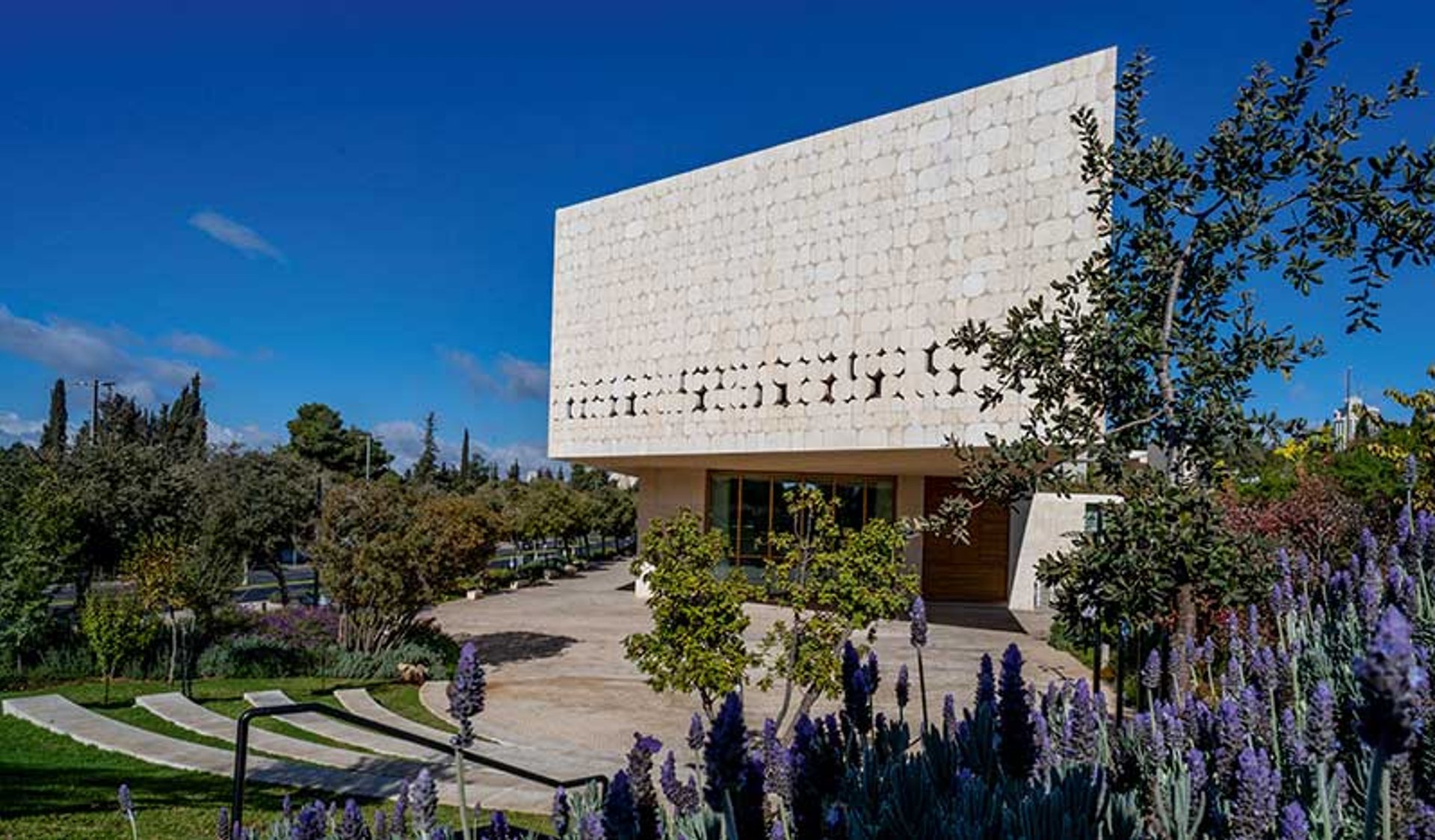
Jerusalem’s National Library of Israel has taken its items on and off view for safety
Photo: © Rex Wholster
When Iran attacked Israel in April and October 2024, staff again deinstalled and secured objects. By November, they were back on view, and on 13 June 2025, when Israel attacked Iran, they again returned to safety.
Israel Museum
Less than half a mile away, Suzanne Landau started as director of the Israel Museum—the country’s largest, with nearly half a million objects—on 9 September 2023.
In her first three weeks on the job, she was organising an exhibition with Vienna’s Albertina Museum on Egon Schiele, Gustav Klimt and Oskar Kokoschka scheduled for 2024. By late afternoon on 7 October, staff moved the Dead Sea Scrolls, “our number-one treasure”, to storage, Landau tells The Art Newspaper. (They are the world’s oldest biblical manuscripts.)
The most significant items—from the museum’s three wings: fine arts, Judaica and archaeology—were safely stored by the next day. The museum could not move two loans from the British Museum until 9 October, when it got the green light from the London-based museum. “We were very moved that [the British Museum] said, ‘First of all, take care of the staff, so they will be safe’,” Landau says.
But collaboration with international museums has proved difficult. “We are in, really, complete isolation. I don’t even ask for loans, because I don’t want to put [anyone] in an awkward situation,” she says. “The country is at war. So how can I even ask?”
On 12 June, the Israel Museum held an event for its 60th anniversary, which drew more than 7,000 visitors, the last of whom left around 1 a.m. At 3 a.m., staff received an alert about Israel’s attack on Iran, and by 5:30 a.m., employees were moving items to storage.
Unable to collaborate internationally, the museum has reinvented itself and turned its focus on its collections with “fresh and new eyes”, she says. Like the Tel Aviv Museum, it has also brought its collection to children displaced by the war and become a site of art therapy for those afflicted by post-traumatic stress. After the war, Landau believes it will become easier to return to normal relationships with museums overseas.
Raised in the Jewish community in Italy, Coen-Uzzielli had long felt that antisemitism had largely disappeared, she says. “Today, I think one of the most troubling developments is how criticism of Israel is often conflated with antisemitism,” she tells The Art Newspaper.
“Since 7 October, I sometimes feel that antisemitism is re-emerging—or maybe it was always there, and I just didn’t want to see it.”


